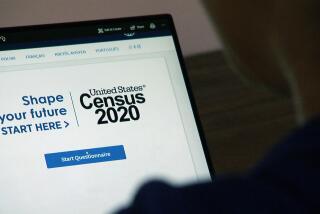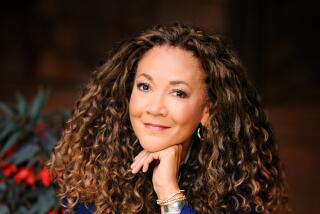Asking the Race Questions
- Share via
A new friend and I were talking the other night through the haze of misunderstanding that is the legacy of racial mistrust. Only I didn’t know it at the time. I suppose I assumed too much; both of us are white.
My friend was talking about her neighborhood, her “wonderful street” in Pasadena, full of people with values similar to her own. It is there where she lives with her husband and two kids. But, then, as her 6-year-old daughter walked by, she whispered her next line:
“All of our neighbors are black.”
This I understood, especially now, as the convulsions of rage that rocked Los Angeles still reverberate through us all. Why define for our children a world of us and them?
I have never mentioned to my own daughter, for example, that some of her playmates are of a different race, and she hasn’t asked. They are just kids, judged by my daughter on whether they act nice, on whether they know how to share.
But then I asked my friend why she had chosen to live where she does. It was then, I imagine, that this woman assumed she had misjudged me. Maybe she thought I was one of them, a racist and a close-minded fool. Her body stiffened, and a defensive anger flashed across her face.
“What do you mean?” she asked.
Flustered, I stumbled in my response. Others in the room, during a party where the banter was supposed to be light, became silent, listening too.
“No offense . . . What I meant . . . I mean, I was just wondering . . . I was interested in a sociological sense,” I said.
What I genuinely wondered was why, with no strings attached. I knew that her family had moved to this street without any sentimental bonds, that they were the newcomers there.
I wondered if the neighbors had been a consideration, if they talked to them before putting their money down, if they had learned anything, if they had any regrets, if they were fueling hope. I wondered if this was an experiment, or a test of faith, or if color were simply not an issue at all.
In hindsight, I realized I probably would not have asked the same question of a black friend had she mentioned that she’d moved to a street where everyone else was white. The question could be misconstrued. Maybe I’d still wonder, but I’d just answer the question for myself.
And I’d never know how that black family felt.
But among those of our own race, we take liberties, often without thinking them through. We assume an understanding that goes deeper than skin. Take away the color barrier and we assume we can talk to each other, simply as human beings.
And we assume, too often, that those of a different race would not understand. We usually don’t bother to test our theory. We know what The Other is thinking, right? Then why do we keep getting it wrong?
My friend, I think, had a twinge of regret for responding as she had to my question. Sensing my embarrassment, she softened. She seemed to be saying that she meant no offense.
“Actually, it was all we could afford,” she said. “And my husband’s office is just a few blocks away.”
But the “racial thing,” not prejudice or bigotry but the reality that the world is far from color blind, that race and social class are still tenaciously bound, all of this shades our world.
It is a reality that works in insidious ways. Most of us are on guard, either looking for slights or trying to avoid saying the wrong thing. Fear and apprehension stifle understanding, even among “our own kind.”
With my friend, though, I wanted to let it go. We were at a party; we needed some lightening up from the stress of the past days. Yet she felt compelled to go on, to defend her choices, just in case.
Because, she said after a pause, her children are in private school.
The neighborhood school, she said, just happened to be the worst in the district. She would have been mollified by some grass on the playground, at least. Yet she couldn’t even find that.
She didn’t want to sacrifice her children’s education for an ideal that is still woefully abstract.
Another party guest, a father whose daughter is now 21, said he had wended his way through this dilemma years before. He wanted to do right by his daughter and society at large. Defeated, his daughter, too, ended up in private school.
So, again, reality intrudes. We all want the best for our families and we hope we know what that is. We all, most of us, want to do what is right.
And when it comes to fostering racial harmony, many of us are not quite sure just what that is. That’s why I believe it helps to ask.
Dianne Klein’s column appears Tuesday, Thursday and Sunday. Readers may reach Klein by writing to her at The Times Orange County Edition, 1375 Sunflower Ave., Costa Mesa, Calif. 92626, or calling (714) 966-7406.
More to Read
Sign up for Essential California
The most important California stories and recommendations in your inbox every morning.
You may occasionally receive promotional content from the Los Angeles Times.













